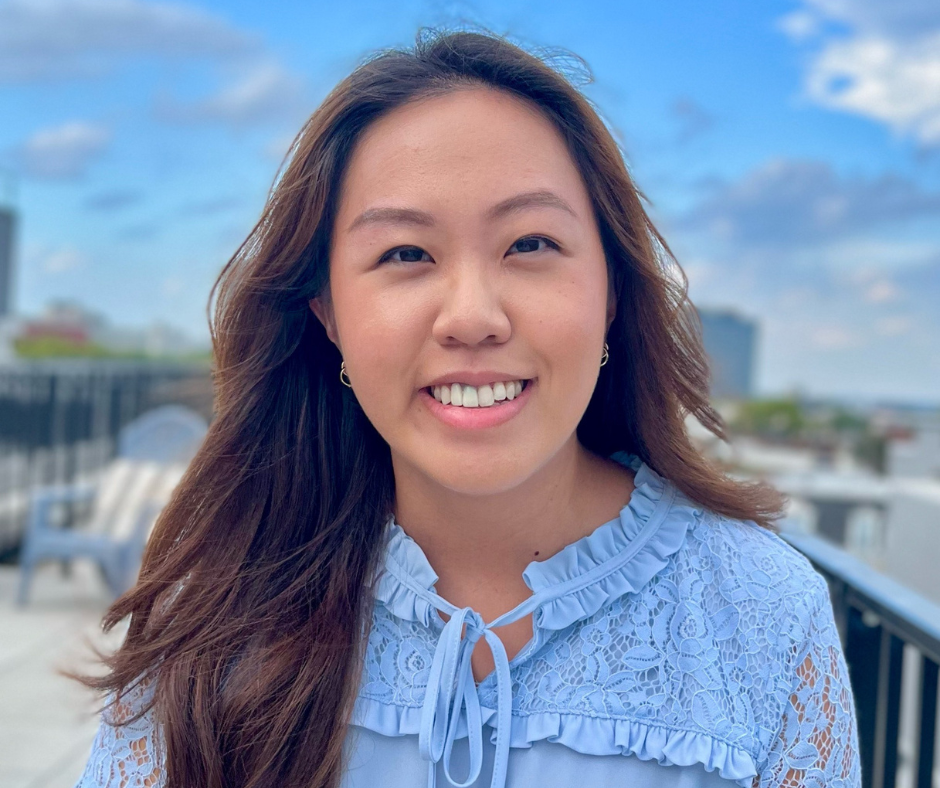How Mentorship Is Improving the Mental Health of AAPI Students at New Jersey’s Haddonfield Memorial High School.
In 2019, Haddonfield High hired four new BIPOC staff members, including the Dean of Students, Hamisi Tarrant. One of Mr. Tarrant’s immediate priorities was to ensure all students felt a sense of safety, belonging, and connection.
In 2020, with the nationwide rise of anti-Asian sentiment, he reached out to Haddonfield’s High school psychologist, Alice Lee, to ask her to consider facilitating an Asian American Cultural Club. Alice took on the challenge.
Today, under Alice’s guidance and mentorship, the Asian American Cultural Club (AACC) has grown into a vibrant community where Asian American students feel secure and accepted. Here’s how Alice got the AACC rolling.
"Ms. Lee’s mentorship and the opportunities the AACC provided to lead and learn with my peers helped me gain a better understanding of aspects of my culture that I blocked out for so much of my life."
Rania, former AACC President
A Student-Led Asian American Cultural Club That Aligned With the School Mission
The AACC offered Alice a chance to extend her more focused school psychologist role to include broader mental health support. And as a Korean American, she made an ideal club voice, face, and facilitator. The students could truly see themselves in her, and that recognition was crucial to building authentic trust and belonging.
Although Alice drafted the club description and offered guidance and feedback, the student members themselves were responsible for establishing its priorities and operations. They decided to:
- Hold casual, non-agenda meetings.
- Commit to show up for each other in authentic peer-to-peer support.
- Arrange potlucks several times each school year. Students cook a cultural dish at home with their parents and bring it in to share with other club members.
- Raise money for Stop AAPI Hate.
- Offer Asian candies and paper cranes with the student body at school events.
- Run a book club for the entire community featuring Asian narrative novels.
- Participate in the county Equity Summit, a school assembly designed to create conversations around stereotypes, microaggressions, and school action plans.
Thanks to Alice’s mentorship, AACC lives out Haddonfield’s school mission: The students were indeed empowered to build a club that nurtured them holistically and inspired them as individuals and as a group.
The picture above shows the AACC of 2022-2023.
Mentorship Made a Measurable Difference in the AACC Members’ Health and Wellbeing
Alice’s involvement in the AACC was that of facilitator and mentor. She made herself available to club members and responded fully to those students seeking additional connection and direction. Alice’s time, energy, support, and counsel to her mentees resulted in students ability to:
- Select a college where there is Asian representation/diversity
- Advocate for themselves and others in experiences of microaggressions
- Grow pride in their identities and home cultures
Recently, Haddonfield High School's AACC club presented to the board of education. One club member, Asher, took the opportunity to share reflections on the club: “What’s really meant the most to me is this community that we’ve formed. I’ve found a whole new group of interesting people, talented people, to be friends with. That wouldn’t have been possible without joining the AAPI club.”
Alice’s mentorship has helped club members feel understood and build resilience — the students’ presentation to the board and letters she has received from former members are certainly evidence of that. But successful mentorship is never a solo act. Alice’s mentees have provided a way for her to care for her own mental health.
“The AACC has been a way for me to care for and heal my own inner child.”
A Repeatable Formula for Proactively Strengthening BIPOC students' mental health
Effective mentorship requires a dedicated and capable individual to serve as a guide, confidant, and role model for an equally committed person. This partnership is mutually advantageous and involves shared efforts. In the context of the Haddonfield AACC, Alice established and maintained the environment, yet the club structure delegated a significant portion of decision-making authority to the students themselves.
The AACC is growing. Involvement and attendance is consistent, even as club officers graduate. The book club attracts both students and community adults. While Alice now receives a stipend, she experiences payoff far more important.
“I hope the AACC can serve as a model for other schools,” says Alice. “Getting a club started may not be easy, but the steps are actually pretty simple. Once the club built momentum, everyone involved experienced meaningful connection with others —including me! I’ve seen how the connection we grow with each other can serve as an antidote for teen mental health struggles — and a safeguard for my own health and well-being.”
"Ms. Lee, Thank you for being real with me, for sharing your experiences as an Asian American woman, and for valuing my opinion. You’ve played an important role in my personal identity journey."
Kiki, former AACC club officer
Feeling called to be a mentor to a teen or group of teens? Learn more about how to mentor successfully.
About Haddonfield
Haddonfield High School is located in Haddonfield, New Jersey, which is 20 minutes from Philadelphia. Haddonfield High has a student population of around 900, and its stellar reputation rests on its athletics (Go Bulldawgs!) and its academics.
.png?width=400&height=92&name=Care%20Solace%20Signature%20(1).png)


.png)

.png?width=470&height=394&name=Youth%20Advisors%20(2).png)

.png)

.png)